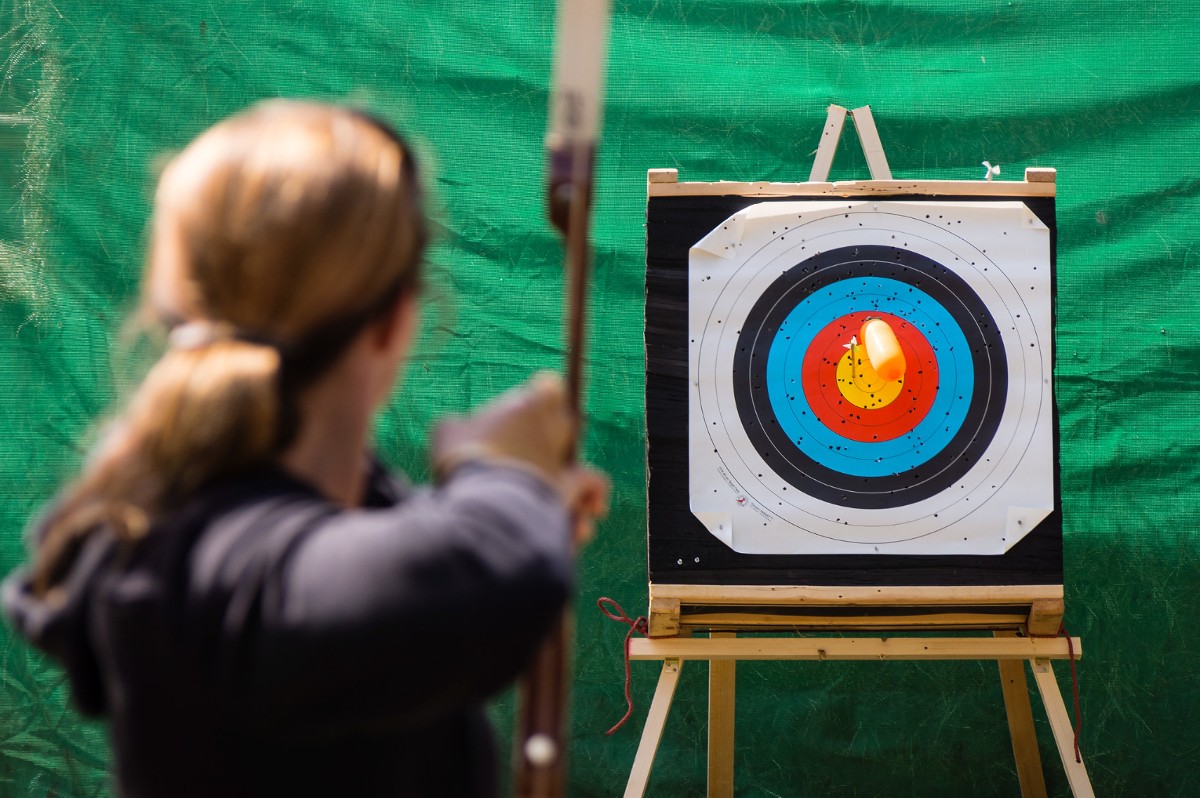
What is Purpose?
Purpose from the context of Writing Studies refers to
- a writer’s or speaker’s reason for communication
- a reader’s, listener’s, user’s . . . reason for reading a text.
For rhetors, after considerations of audience, little is more important than purpose.
Synonyms
- Purpose is also known as Aim, Aim of Discourse, or Goal.
- Some people consider purpose and thesis to be synonymous terms. Others view purpose to be a broader classification of discourse and thesis to be a more specific message or argument.
Related Concepts: Thesis; Writing Styles
Purpose plays a profound role in human communications:
As humans, we are innately purpose driven. Our sense of purpose guides our composing and interpretative practices.
- For a writer, speaker, knowledge worker . . . knowing their purpose for communicating is a bit like knowing the destination for the journey and then plugging it into a GPS system. That said, because writing invokes insights, learning, synthesis–and much more–purpose often evolves during composing. Writers may end up embracing a purpose that is quite different from what they started with when they first began writing.
- For the reader, listener, user . . . purpose is a perspective that informs critical analysis and interpretation: when reading the texts and ideas of others, readers consider the rhetor’s purpose. They ask whether the rhetor’s goal is to inform, persuade, entertain? Does the rhetor seem biased? (For more on this, see The CRAAP Test (Currency, Relevance, Authority, Accuracy, Purpose.)
Purpose informs composing processes:
Purpose is an heuristic, a method of invention: Contemplating your purpose in relation to your audience brings into focus what to say and what not to say. Often, during composing, writer’s, speaker’s, knowledge worker’s. . . sense of purpose evolves as they learn more about the topic and intended audiences.
Once you know your purpose, you can
- identify how you need to research, organize, revise, and edit inform
- articulate your thesis, research question, research methods, and organizational strategy.
In some circumstances, writer’s, speaker’s, knowledge worker’s. . . know their purpose immediately. At other times, they need to compose a lot of drafts before they know what their purpose really is. In interviews of writers @ work, one commonplace anecdote is that writer’s, speaker’s, knowledge worker’s. . . especially love writing when their sense of purpose evolves.
Purpose Determines Genre
Genres reflect shared textual expectations between readers and writers. Genre reflects the histories, activities, and values of communities of practitioners. And the actions of these practitioners are determined by shared purposes.
Because life is complicated, so are purposes–or what rhetoricians call the Aims of Discourse. People compose documents for countless reasons, as summarized by the table below.
| Record | Keep a record of events or information |
| Reflect/Explore | Write in a journal, attempt to make sense of something or to shape a new idea |
| Inform: | Objectively report an event. |
| Demonstrate Knowledge | Prove, in school, that you’ve learned course content. |
| Summarize | Report someone else’s words, theories, and research in your own words |
| Explain | Help readers understand a difficult concept, theory, or event |
| Analyze | Break down a problem into parts |
| Persuade | Change minds, invoke action |
| Theorize | Speculate on possible causes and effects |
| Entertain | Bring joy, amazement, and thrills |
Purpose Determines Writing Style
Purpose has been a subject of significant academic study. Since antiquity, theorists have have speculated about ways purpose shapes content.
In the 1970s through the 1990s, this effort to analyze the effects of purpose on the shape of content endured. Building on the shoulders of Samuel Newman’s work, James L. Kinneavy (1971) postulated there are four primary aims, or purposes, for communication:
| Expressive Discourse | e.g, personal journals |
| Referential Discourse | e.g., scientific, informative, and exploratory discourse |
| Literary Discourse | e.g., novels, poems, short stories |
| Persuasive Discourse | e.g., proposals, advertisements, recommendation reports |
In 1975 James Moffett categorized the texts of eleven and eighteen old students in Great Britain. Judith Langer and Arthur Applebee followed up that study with How Writing Shapes Thinking in 1987, replicating the methods of Moffett’s study yet focusing on the writing of U.S. students. Langer and Applebee also extended this analysis by theorizing the effects of different discourse purposes on cognition.
References
Britton, J., Burgess, T., Martin, N., McLeod, A., & Rosen, H. (1975). The Development of Writing Abilities (11-19). Schools Council Publications.
Connors, R. J. (1981). The rise and fall of the modes of discourse. College Composition and Communication, 32(4), 444-455.
Kinneavy, J. L. A theory of discourse. Prentice-Hall.
Langer, J. A., & Applebee, A. N. (2007). How writing shapes thinking: A study of teaching and learning. The WAC Clearinghouse.




